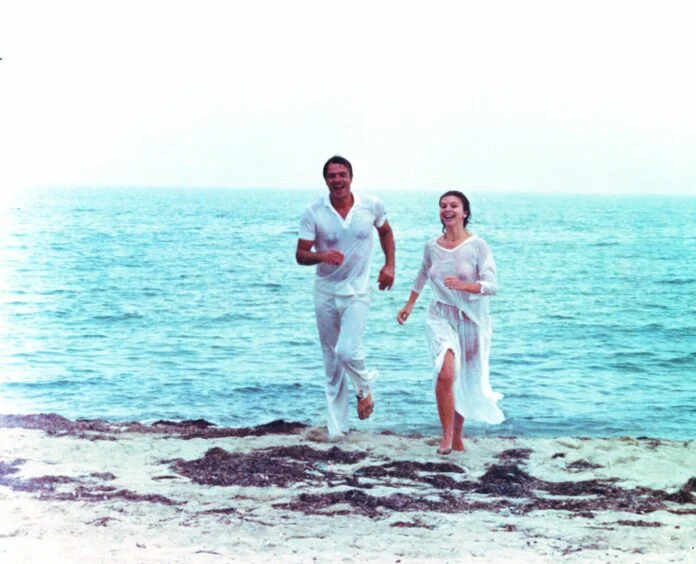The unique, poetic cinematic vision of the great director Takis Kanellopoulos unfolds in the great tribute organized by the 64th Thessaloniki Film Festival (2-12/11/2023).
As part of the tribute, nine films by the visionary creator will be screened, while part of Kanellopoulos’ work will be restored by the Festival, with the support of the Hellenic Cinema Center. The tribute is framed by an original visual installation for his film and literary work.
The award-winning historian and author Mark Mazauer, director of Columbia University’s Stavros Niarchos Foundation Public Humanities Initiative (SNFPHI), will also be in Thessaloniki, for a special discussion after the screening of the film Uranos. The film will be screened in terms of universal accessibility for all viewers, as part of the Festival’s program with Alpha Bank as an accessibility sponsor.
The cinema of Takis Kanellopoulos, idiosyncratic, nostalgic and confessional, radiates tenderness towards heroes who fight internal battles and struggle to survive in a world that does not give room to sensitivity, to melancholy, to regrets for the opportunities that were irretrievably lost. Transforming both the city of Thessaloniki and the Macedonian landscape into an anthropological canvas, as he sculpts the fate of people with the burden and ties places and the memories they carry, Kanellopoulos builds a universe that is deeply lyrical, but at the same time unreal and experiential. The nine fiction and documentary films by Takis Kanellopoulos, which will be screened as part of the tribute, give the public the unique opportunity to rediscover a creator who influenced the pioneers of New Greek Cinema.
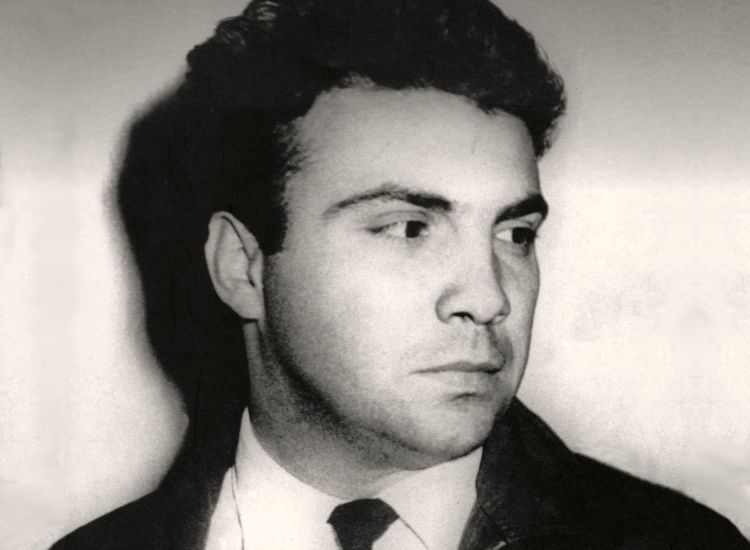
Takis Kanellopoulos
The original visual installation, curated by the film critic Manolis Kranakis, transforms the building of the West Entrance Gate of Gate 1 of the Port into an audio-visual capsule that encloses the obsessions, the anthropo-geography and all the symbols that made Takis Kanellopoulos one of the most iconic and influential figures in Greek cinema. The Thessaloniki Festival opens the door to his distinct universe, introducing to the younger generation his films, the Macedonian hinterland as identified it in his work, the music of his films by great composers such as Nikos Mamagakis, Eleni Karaindrou and Giorgos Hatzinassios and his short stories, through readings by popular actors, directors and writers, such as Zyranna Zateli, Sofia Kokkalis, Zacharias Mavroidis and the muse of Takis Kanellopoulos, Emilia Ypsilanti.
The films of the tribute:
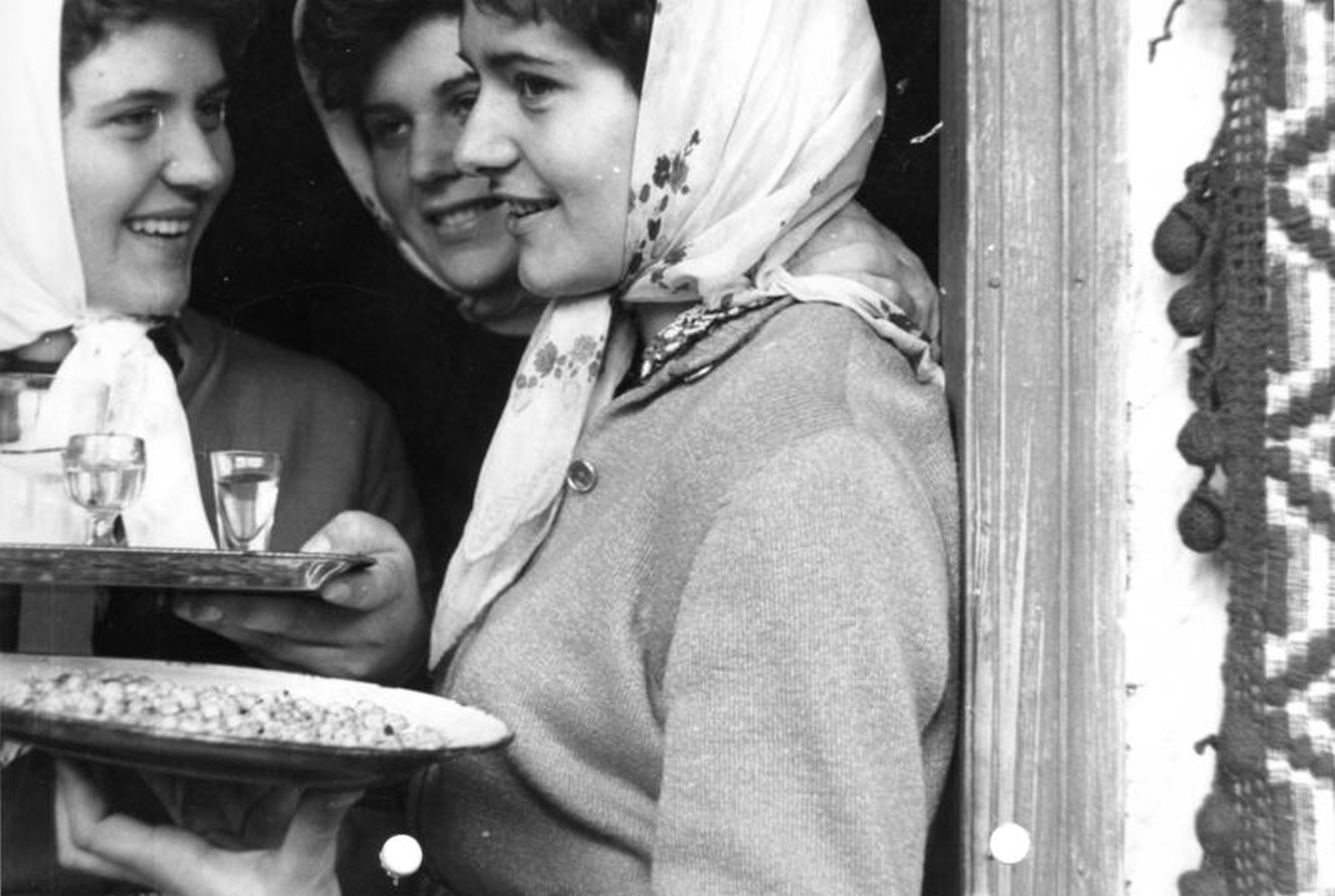
Macedonian Wedding (1960)
Filmed in Velvento Kozani, Takis Kanellopoulos’ first film is a short documentary that describes the customs and traditions related to the traditional wedding in western Macedonia. A lyrical poem about the roots of humans in a pre-eternal, but already lost world. The film won the first short film prize at the First Week of Greek Cinema, as well as the First Prize at the Belgrade Film Festival in 1961.
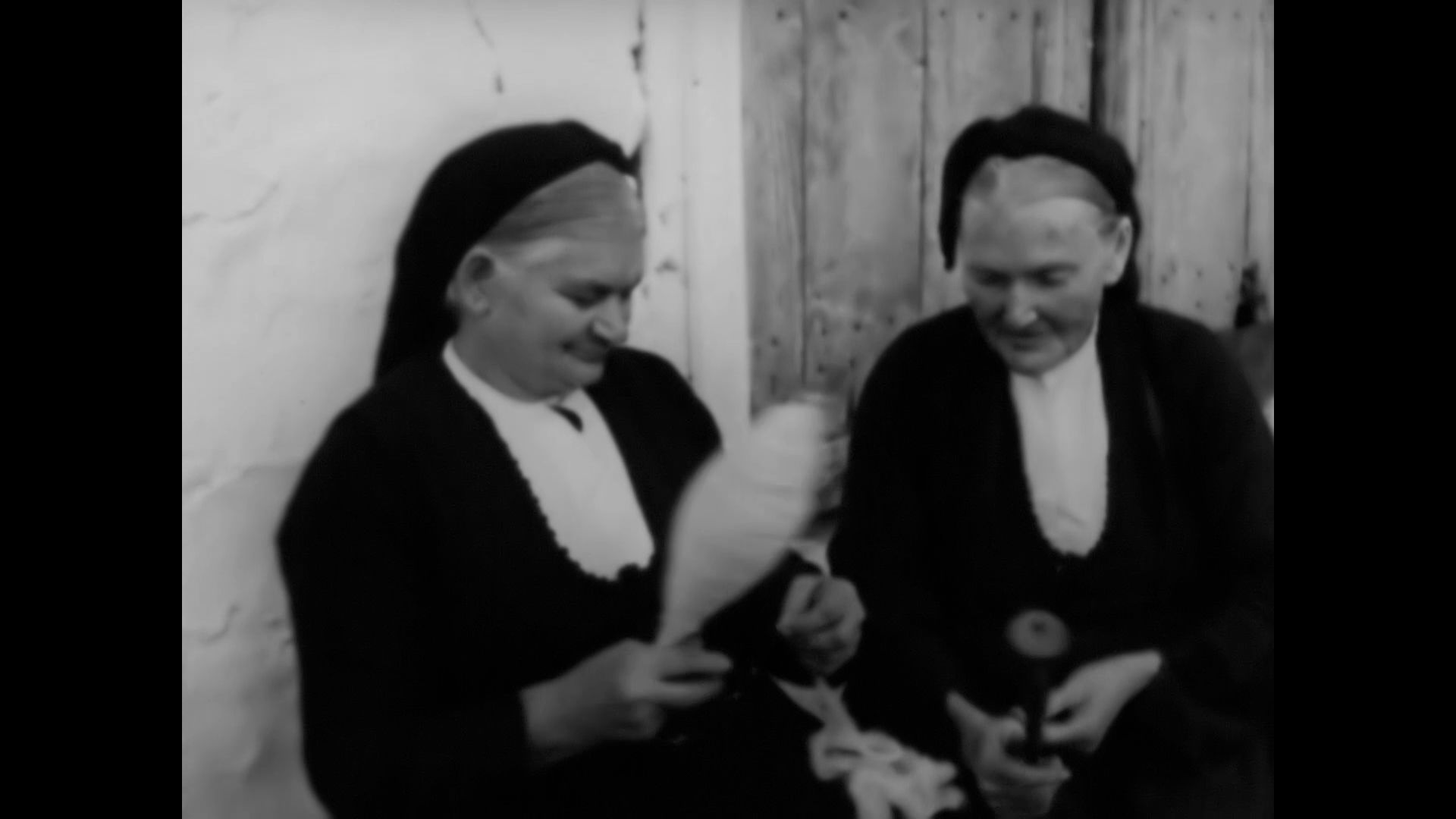
Thassos (1961)
A unique historical document about Thassos in the 1960s, filmed in an innovative way and through the unique perspective of Takis Kanellopoulos. The director observes the daily life of the fishermen and their families, wanting to capture – as he himself stated – “something of the magic and soul” of the northern Greek island. At the center of the film lies man, life in Thassos, nature raging. The film received a special commendation at the Moscow Film Festival in 1961.
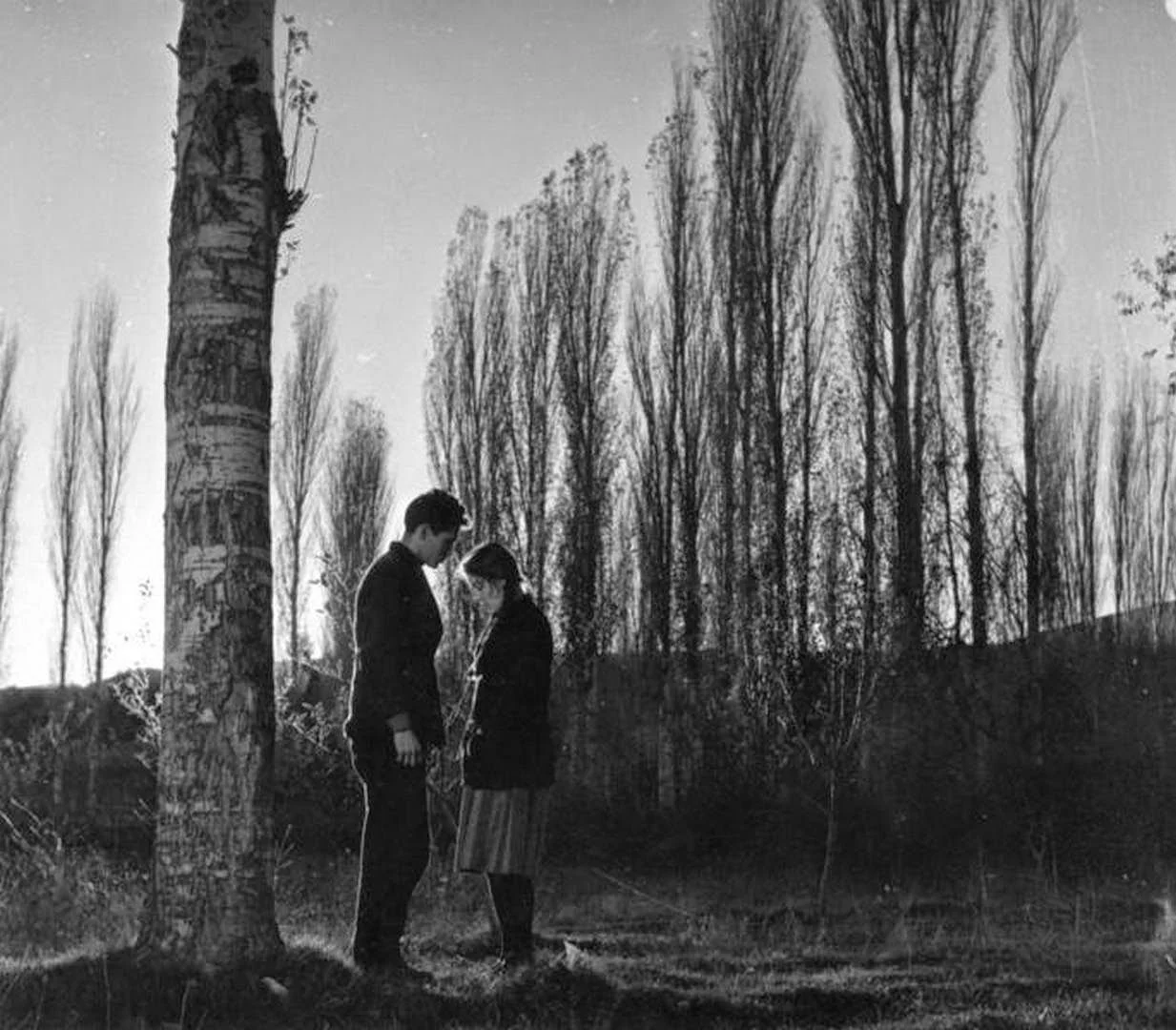
Uranos (1962)
O Uranos, one of the best anti-war films of Greek cinema, is based on the accounts of people who lived through World War II. The protagonist of the film is the rugged and peaceful landscape of western Macedonia. With simple language and poetic one-shots, the epic of the Greek-Italian war unfolds, while the characters of the film experience the defeat and collapse of the front like heroes of an ancient tragedy. The film was screened at several international festivals, including the Cannes Film Festival (1963), and was awarded the Silver Award at the Naples Film Festival in 1963. The film will be screened on terms of universal accessibility for all viewers, as part of the Festival’s program with accessibility sponsor Alpha Bank. In particular, the film will be screened with audio description [AD: Audio Description] for the blind and visually impaired and with subtitles for the deaf and hard of hearing [SDH: Subtitles for the Deaf or Hard of Hearing].
Excursion (1966)
In 1941 and while the war is at its peak, a lieutenant’s wife and a sergeant fall madly in love. The times and circumstances – war and military duty, marriage and the friendship between the two men who serve together on the front lines – forbid this love, but they do not negate it. When during an operation the lieutenant is injured and taken to the hospital, the two lovers, against every moral obligation and commitment they have undertaken, will venture the only possible way out: he deserts, she leaves her husband and together they start a journey of no return towards the border. With: Lili Papagianni, Angelos Antonopoulos, Costas Karagiorgis, Costas Lacha. The film won a Photography prize and an honorable mention for directing at the Thessaloniki Film Festival in 1966.
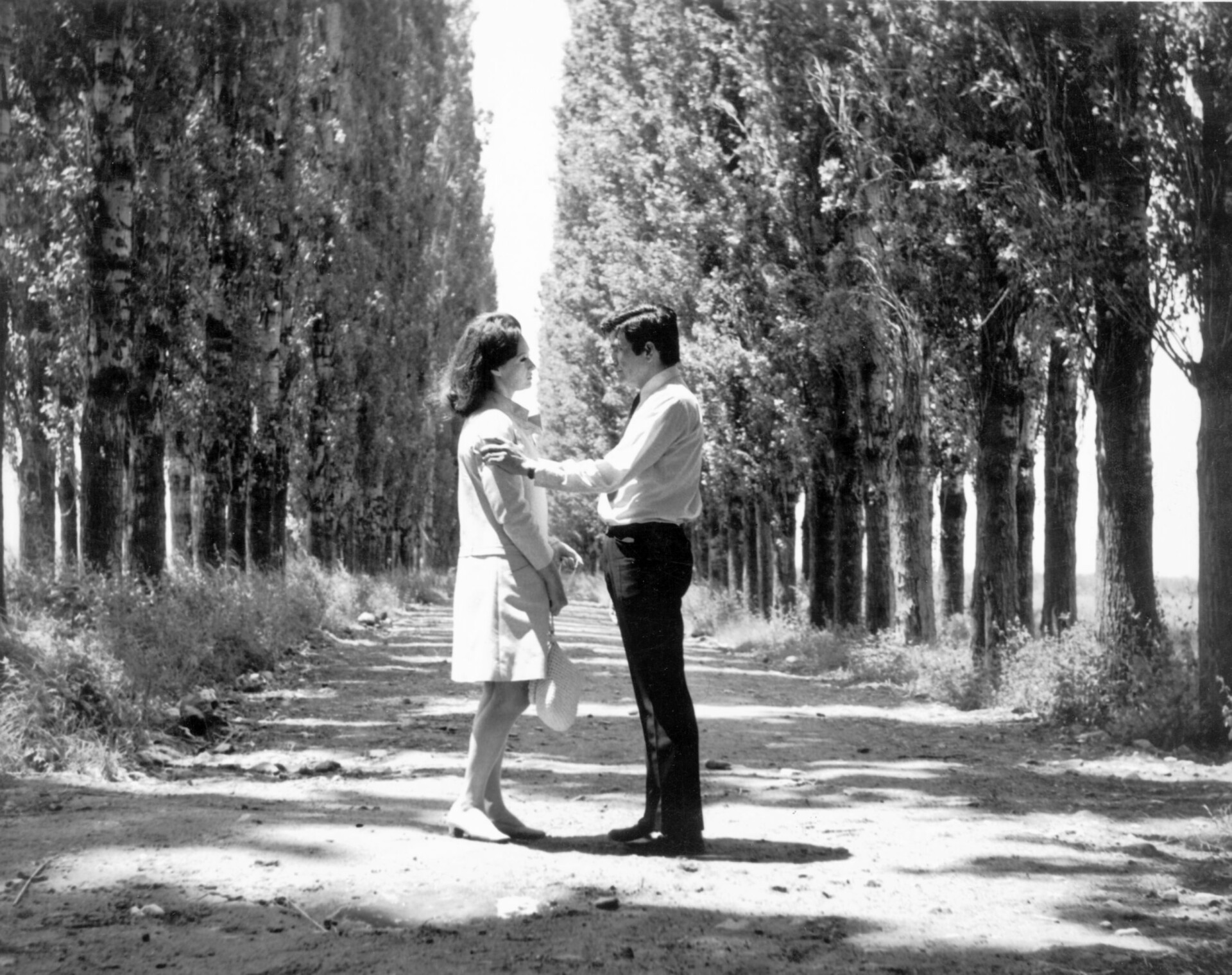
Parentheses (1968)
With close-ups reminiscent of hagiographies, alternating with selective images of a city, the story unfolds of a six-hour meeting in Thessaloniki, between a man and a woman, without names or local designations, only dominated by the city’s landscape. Years later, the heroine returns to the memory of this meeting trying to explain whether it was a great love born in conditions of emotional suffocation or just a parenthesis. With: Alexandra Ladikou, Angelos Antonopoulos. The film received awards for Best Art Film and Photography, Critics Awards for Direction and Music at the 1968 Thessaloniki Film Festival.
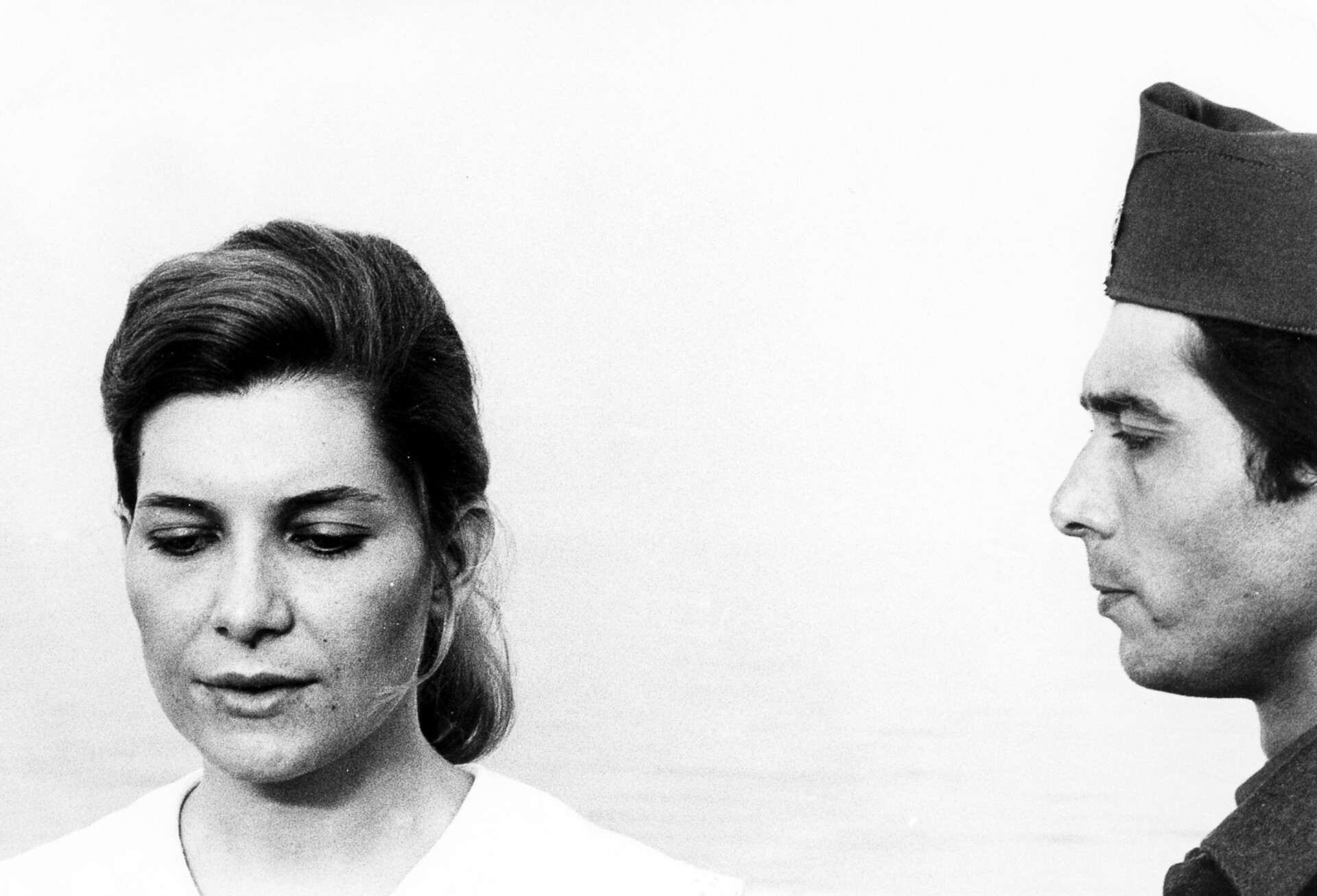
The Last Spring (1972)
During the war, three friends and a girl who have grown up in the same neighborhood say their goodbyes as the young men leave for the front, where each faces a different fate. Takis Kanellopoulos explores themes such as the will for freedom, the fear of death, the tragedy of war, the longing for life. With: Emilia Ypsilantis, Giorgos Fourniadis, Agi Perganti, Vassilis Platakis.
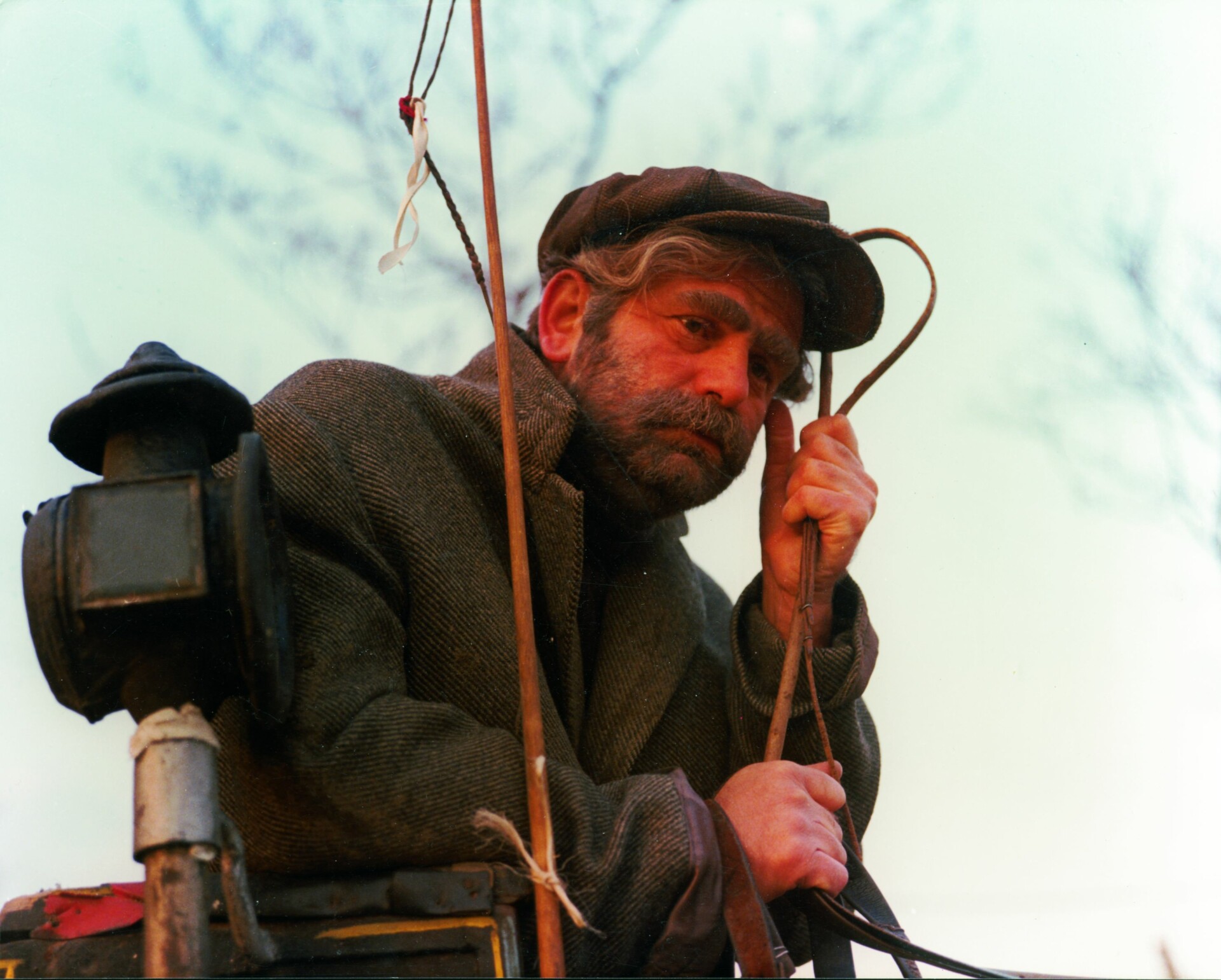
The Chronicle of a Sunday (1975)
Six stories about loneliness among the world, a lyrical depiction of life and at the same time the record of a bygone era. A coachman drives around the city, two old men go to the park every Sunday, a man leaves flowers in various neighborhoods in memory of his friend who was killed in the war, a boy recounts his father’s day, a resistance fighter lives his last moments, a woman waiting for a letter that will never come. With: Thanos Generali, Popi Alva, George Fourniadis, Antonis Theodorakopoulos, Lina Lambrakis, George Domouzis and narrator George Metsolis.
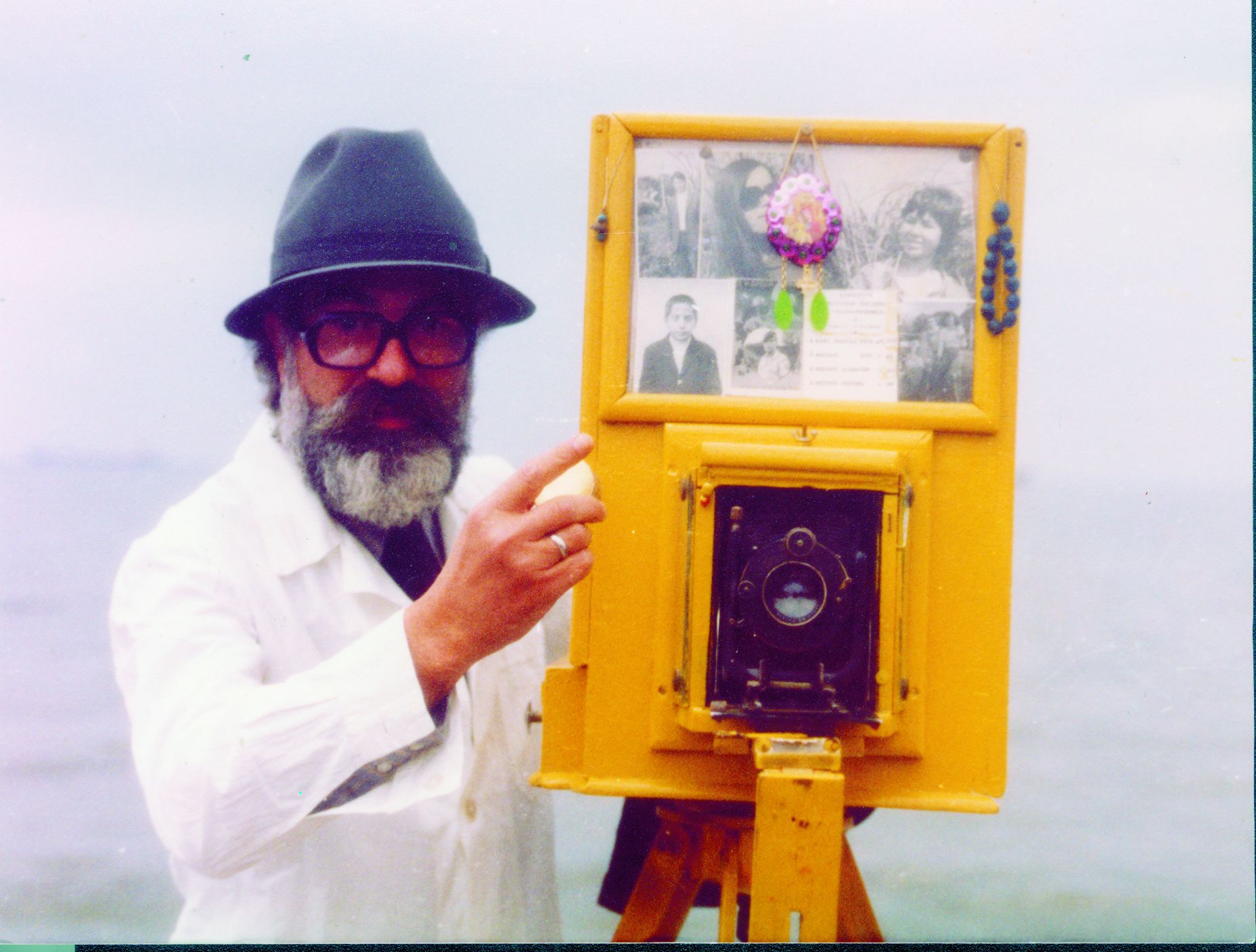
Romantic Note (1978)
The love story of four young friends for the same girl, the enigmatic Adriana, who will upset their lives and leave them as unexpectedly as she entered. The uncompromising and romantic Takis Kanellopoulos explores with this film the theme of lost youth. The film received an honorable mention for photography at the 19th Thessaloniki Film Festival.
Sonia (1980)
Summer of 1966. For a year, Sonia has been watching from the window of her house her much older music teacher, Tonio, who lives in the house across the street. When his wife and daughter are out of town, she will talk to him. They will meet and fall in love, in a sensitive and romantic way. The days of happiness will soon end as his wife and daughter will return. Takis Kanellopoulos approaches his heroes in a tender way, filming their dead-end love, in the film that also marked the end of his filmography. With: Antigoni Doudoumi, Spyros Fokas, Costas Lachas, Lina Lambrakis and narrator Giorgos Mazis.
Source: naftemporiki.gr
